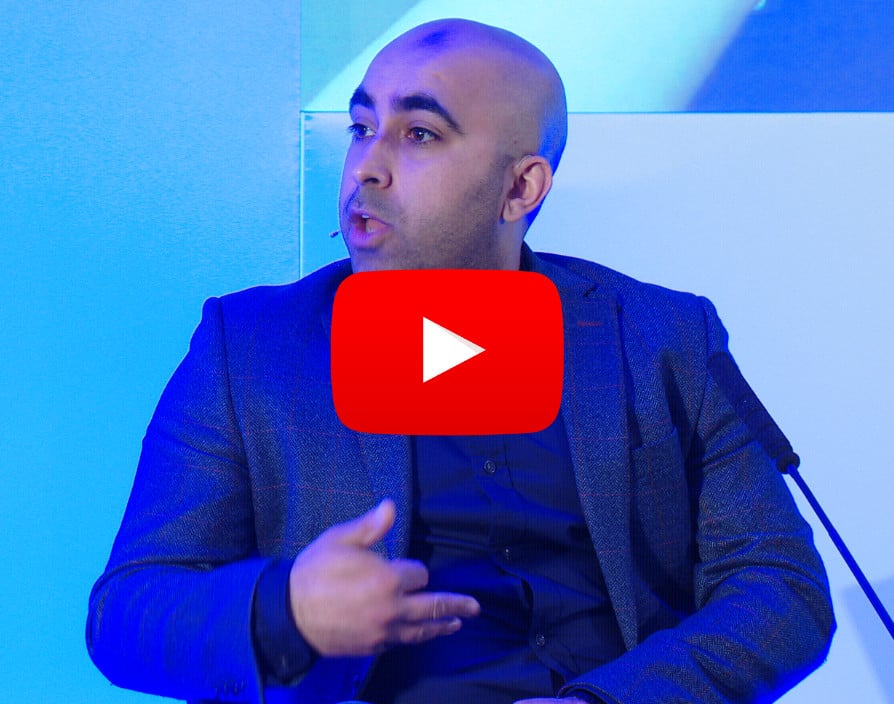The pandemic has brought about a massive shift with remote working now the new norm ‘ how can businesses support their employees and prevent burn out?
Sunny Dhami, Senior Director of EMEA Product Marketing & GTM for Ring Central, joined us on the first day of Elite Business on 11 March as the keynote speaker for the Talent and Regulations talk, speaking about how businesses can manage their talent and support employees during the pandemic amid a digital shift as workforce expectations are now changing at a rapid rate.
Sunny spoke about the five different generations in the workforce and the different ways they operate, and this includes Baby Boomers, Gen X, Millenials, and Gen Z. Sunny explained how the pandemic has shifted the way businesses operate and how firms have adapted to working with their employees with several challenges involved with different generational gaps. In the last 12 months we’ve really had a strong shift in leveraging technology a lot more, Sunny said. We’ve all been on video calls all day every day, we’re spending a lot more time on the phone, email has potentially declined a little bit. So having to support and manage many of these different generations with different types of technology, supporting them through learning that technology, but also their uptake. I know messaging platforms and social messaging has seen a huge boom over the last few months and it’s interesting to see how different businesses have adopted to that.
A year ago, flexible and remote working used to be a perk that employees would seek out when applying for a new role. Now, remote working is seen as the norm and businesses must now come up with new ways to manage and support their talent. Those that have adapted to the new mode of working earlier on have built better relationships with their employees and prospered as a whole, Sunny said. “One of the things that I’ve seen is how much people want some form of remote or hybrid work moving forward. So businesses that are in traditionally fixed industries like finance and education are now looking for a more of a hybrid approach in the way that they can work. And what we’ve seen over the last 12 months is that the businesses that have supported their employees the best have taken extra steps to keep their employees connected, to keep them engaged and to make sure that remote working is part of that experience. But the investment doesn’t stop there. As the UK is opening up and we’re going back to work we’re still in a process of reshaping what the new normal looks like and how we can help employees do that.
There are also changes in attitudes between the generations when it comes to remote working. A study by Miro shows that Gen Z and Millennials are more likely to start work in bed, with 23% of Gen Z checking in to work from the comfort of their bed compared to 12% of Baby Boomers. However, a study by Ring Central showed that 46% of knowledge workers believed their workload had increased over the last year. Sunny mentioned that this may be because employees can decide their hours of work and thus, may work longer than needed. Also, many workers will skip their long work commutes thus leaving them with more time to catch up on tasks at home. Sunny advised businesses to manage their employees and make sure they’re taking time out, and are not feeling overwhelmed or pressured to always be online after work hours. Reliable technology is essential during the pandemic especially for businesses whose employees work remotely, and Sunny advised firms to apply tech that is scalable and can be implemented for the long-term as the way we work has now transformed.
In a new era of hybrid working, Sunny advised businesses to manage their talent to cultivate a positive work culture to ensure everyone’s needs and concerns are being met as Britain’s workforce undergoes a dynamic shift. This includes work-life balance, technology and tools, compensation and benefits, learning, wellbeing and health and regulations, which including tax regulations and Brexit. In the coming months and years, it will be very important to stay on top of this, Sunny said. It will be very important to support our employees in how we move forward. And it will also be very key on how as a business we change our processes as to what we put in place and how we can help employees moving forward.
“
Share via:








































